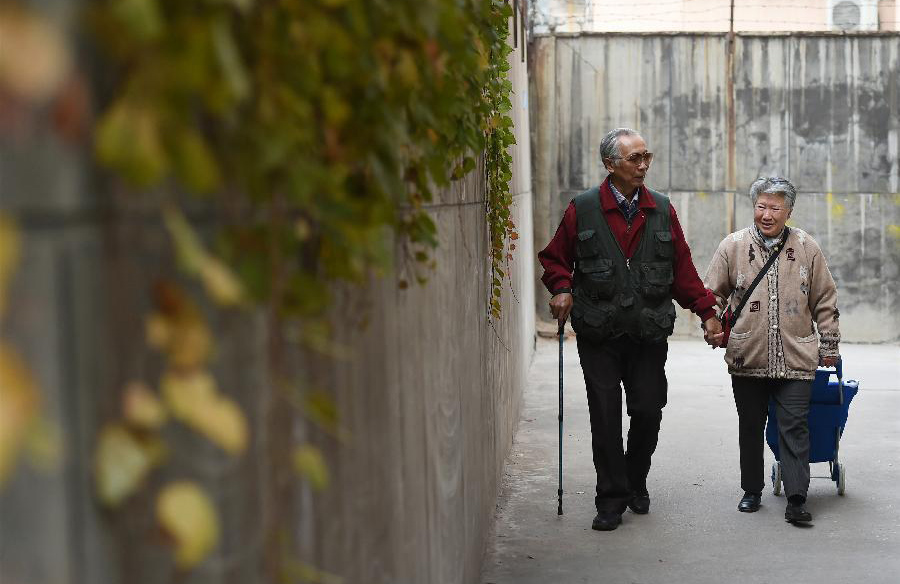Report: Families still primary caregivers for elderly

According to a recent report released by Renmin University of China, most Chinese seniors are primarily supported by family members.
Family support remains the primary means for taking care of China’s elderly, according to a recently released report on the nation’s aging population.
Jointly released by the National Survey Research Center and the Institute of Gerontology at Renmin University of China in Beijing on March 4, the Report of China Longitudinal Aging Social Survey found that 94 percent of Chinese citizens aged 60 and older are primarily supported by family members. Of those aged 80 years or older, nearly 72 percent are cared for by their offspring, and 10 percent of seniors are still caring for their own aging parents.
The survey adopted probability sampling involving multiple levels and stages. Covering 134 counties and districts as well as 462 villages and settlements, it collected more than 11,500 questionnaires from individuals and 462 from communities.
Based on comprehensive analysis of the baseline survey data, the report found that more than half of Chinese seniors are younger than 70, and one-third of them received at least a junior high education. The cognitive abilities and social adaptability of the group as a whole are rather good, according to the report.
“Empty-nesters,” whose sons or daughters are absent, accounted for 47.53 percent of the entire elderly population, with those living alone accounting for 9.63 percent and old couples, nearly 38 percent. Approximately one-fourth of the elderly respondents reported feeling lonely to varying degrees, especially those living alone.
The report recommended a series of measures in response to these demographic trends. It suggested expanding social resources for the aged, strengthening support for home-based care and enhancing the development capacity of each household. Furthermore, it argued for the establishment of a comprehensive service system to provide health care for seniors.
It also addressed the pension security issue for the elderly in rural areas, arguing that the social pension service network in those regions needs to be improved. In addition, the potential for seniors to engage in the workforce needs to be realized to provide opportunities and platforms for the group’s social participation.
Citing the fact that China started to become an aging society in 2000 and population aging has been continuing, Liu Wei, president of Renmin University, stressed the importance of scientifically understanding individual and population aging.
Liu said it is imperative to have an accurate picture of seniors’ living conditions while recognizing new changes and problems of various kinds in the aging society. These are an important guarantee for improving senior’s quality of life, coping with challenges presented by population aging and promoting domestic and social harmony, Liu said.
Other scholars pointed out that studies of the aging problem will not only provide a scientific basis for the government’s policymaking, but also bring benefits to the elder care industry and the pension service sector.

 PRINT
PRINT CLOSE
CLOSE